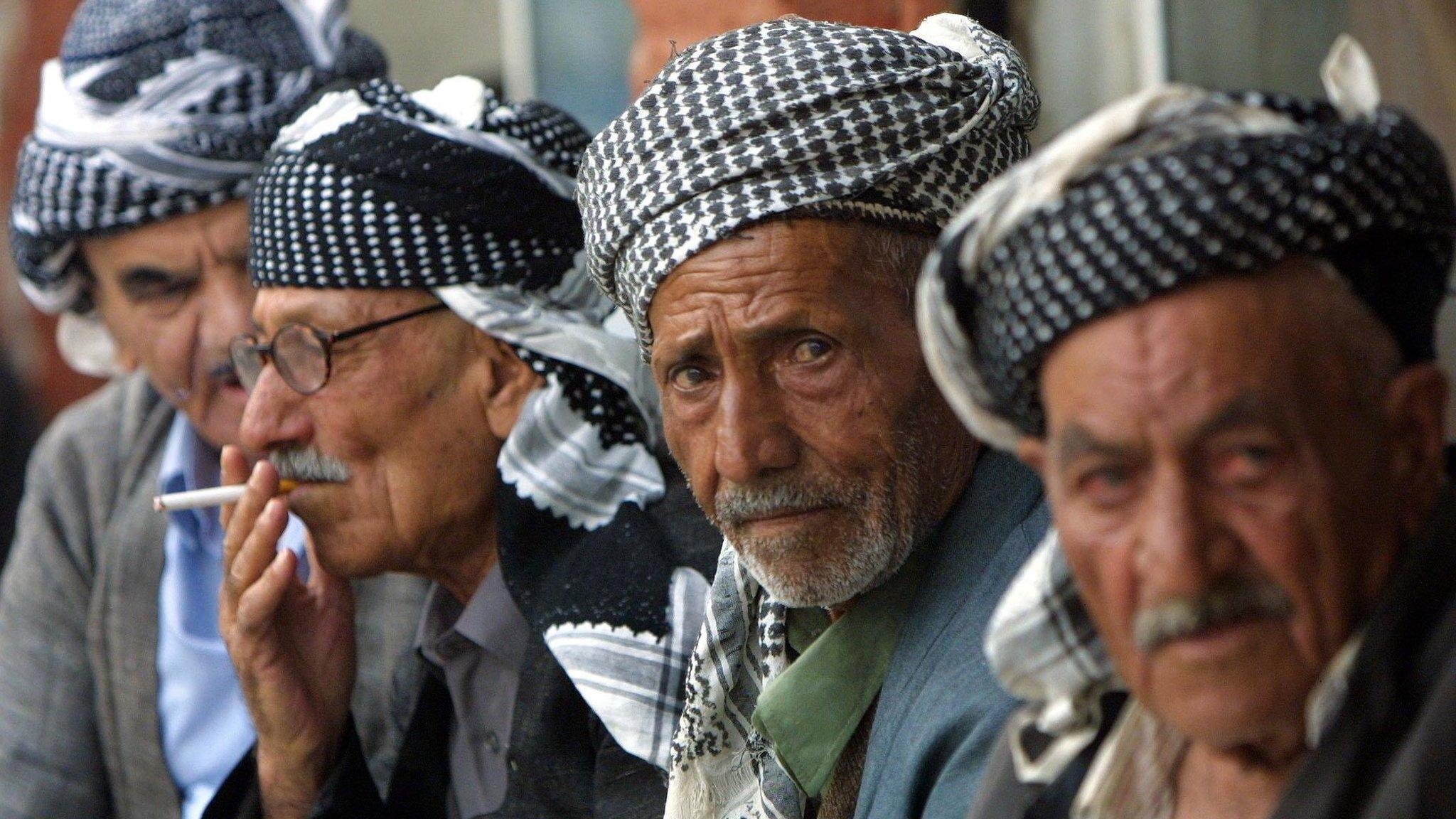Afrin's Kurds: 'We will never abandon our homes'
- Published
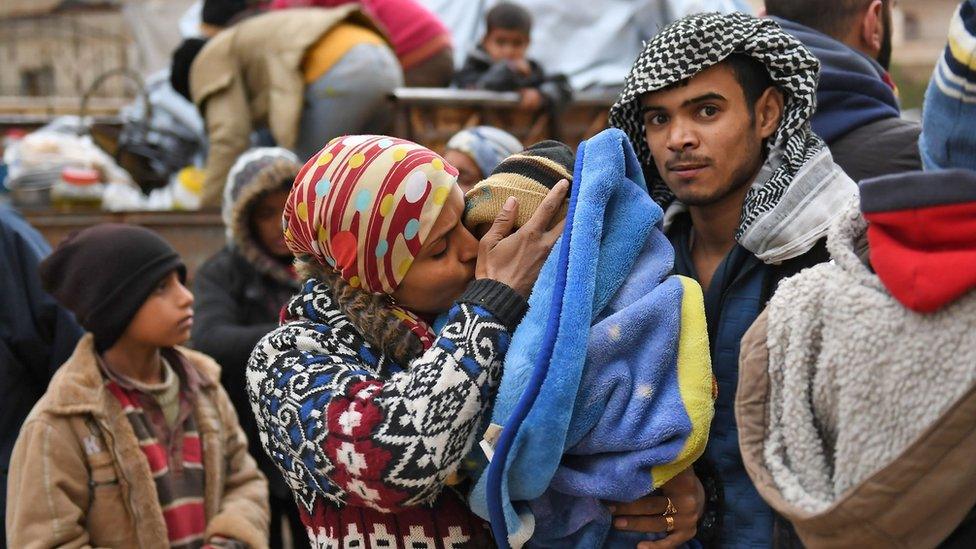
The UN says 5,000 people are reported to have been displaced by the Turkish offensive
Six days ago, the Turkish military and allied Syrian rebel factions launched an air and ground offensive on the Kurdish-controlled border region of Afrin.
The Turkish government said the aim was to drive out members of the Kurdish People's Protection Units (YPG) militia, which it considers an extension of a Kurdish rebel group it has fought for decades.
The Turkish-led forces so far have made limited territorial gains, but the fierce fighting and bombardment of the enclave is reported to have left dozens of people dead and forced thousands of civilians to flee their homes.
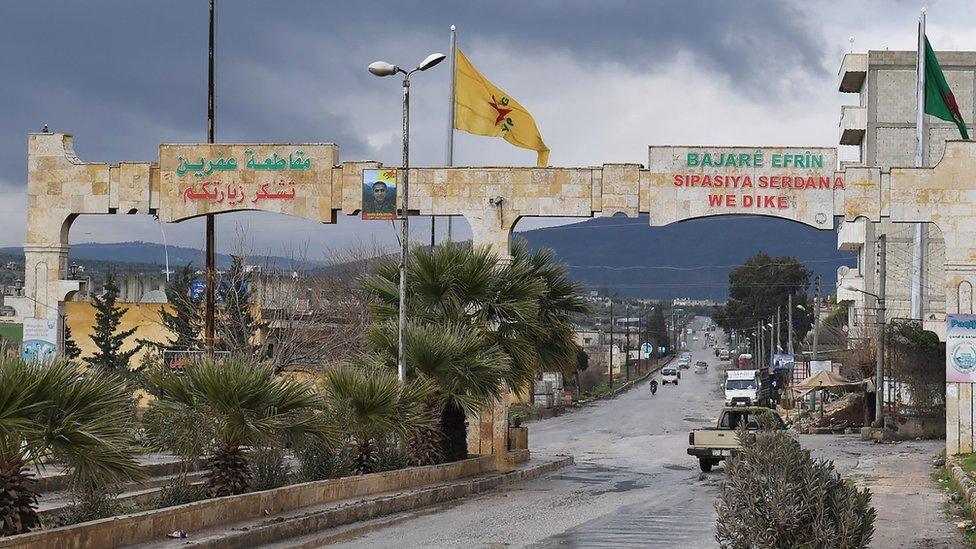
The Afrin region has been controlled by the YPG militia since 2012
Hamrin Habash, a 22-year-old English literature graduate who lives in the city of Afrin, told the BBC that she had noticed many displaced people arriving from border villages since the start of the Turkish offensive.
"Some of the people who I have met are already refugees from Arab towns controlled by the Turkish-backed groups and Isis [Islamic State group, or IS]," she said.
"They ran away from them and they came to Afrin because this was a safe place. Now they have had to run away again from Turkish-backed groups."
Ms Habash also dismissed the Turkey government's assertion that its air and artillery strikes have only targeted "terrorists" and not civilians.
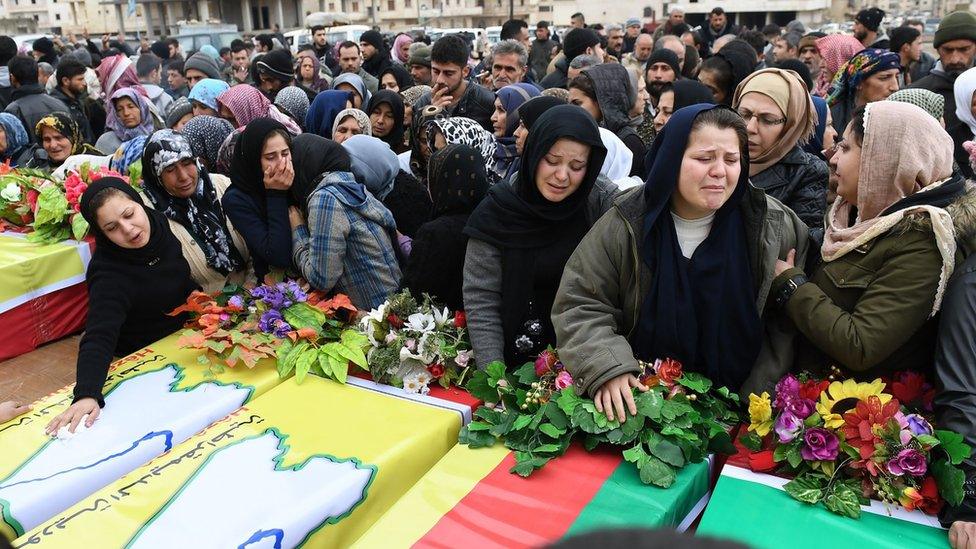
Dozens of Kurdish fighters and civilians have been killed in the fighting
A manager at Afrin's hospital told her on Thursday afternoon that almost 40 civilians had been killed and 128 others injured, she recalled.
"Unfortunately, I know a family who was killed," she added. "They were really nice people. They ran from [IS] only to die here in a Turkish air strike."
Ms Habash said other villages around Afrin, which is 13km (8 miles) from the frontline, had also been bombed, including Turandah, near where she lives.
"We have to take shelter inside our buildings' basements every time the Turkish jets bomb the area."
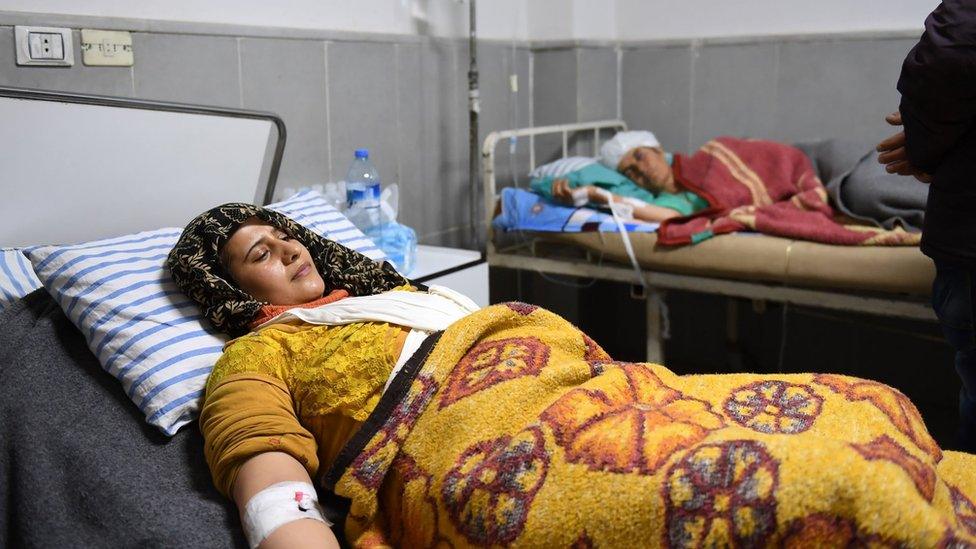
The Turkish government insists that it has not been targeting civilians - a claim the Kurds reject
She said she had no fear as long as the YPG and its allies were defending Afrin, but was "afraid for the lives of my family, friends and everyone in the city".
"If these Islamic groups arrived here, there would be a different situation. There would no longer be the secular Afrin that we are used to living in," she added, referring to Islamist rebel factions involved in the Turkish offensive and those in control of the neighbouring province of Idlib, to the south.
Kurdish leaders have appealed to the other world powers involved in the Syrian conflict to protect Afrin's more than 320,000 residents.
But the United States - which has heavily relied on an alliance led by the YPG to fight IS on the ground in eastern Syria - has only urged its Nato ally Turkey to "de-escalate, limit its military actions, and avoid civilians casualties".
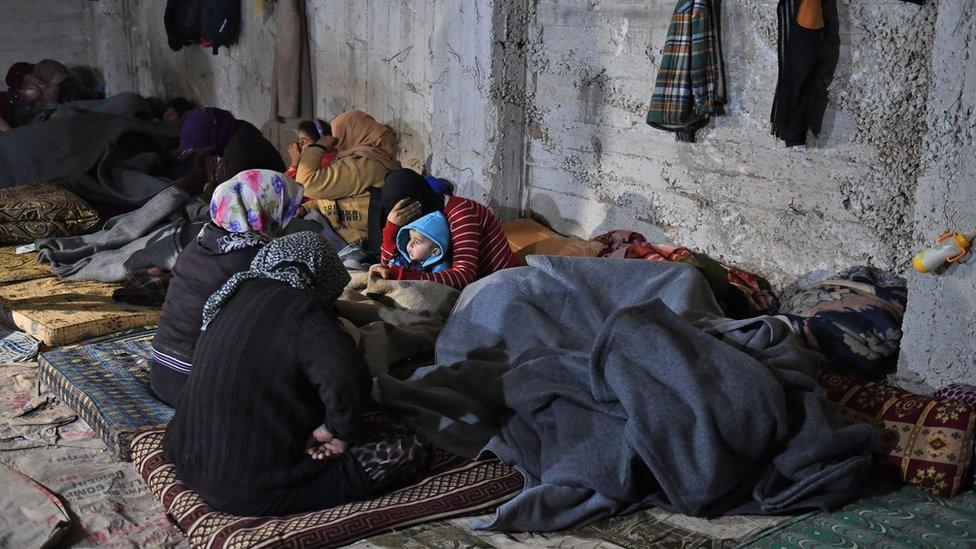
Many displaced people have been sheltering inside the city of Afrin
Russia, a key ally of the Syrian government, meanwhile withdrew its military observers from Afrin before the Turkish offensive began and is effectively allowing Turkish warplanes to use Syrian airspace to bomb the Kurdish enclave.
"I blame everyone. Nato, Russia and the US," Ms Habash said.
"We have fought extremist groups in defence of the whole world. And now look what's happened? They let Turkey attack us for its delusional, expansionist dream."
But she insisted: "We will never abandon our homes. Turkey wants to ethnically cleanse the Kurds and we will not let them do that."

- Published25 January 2018
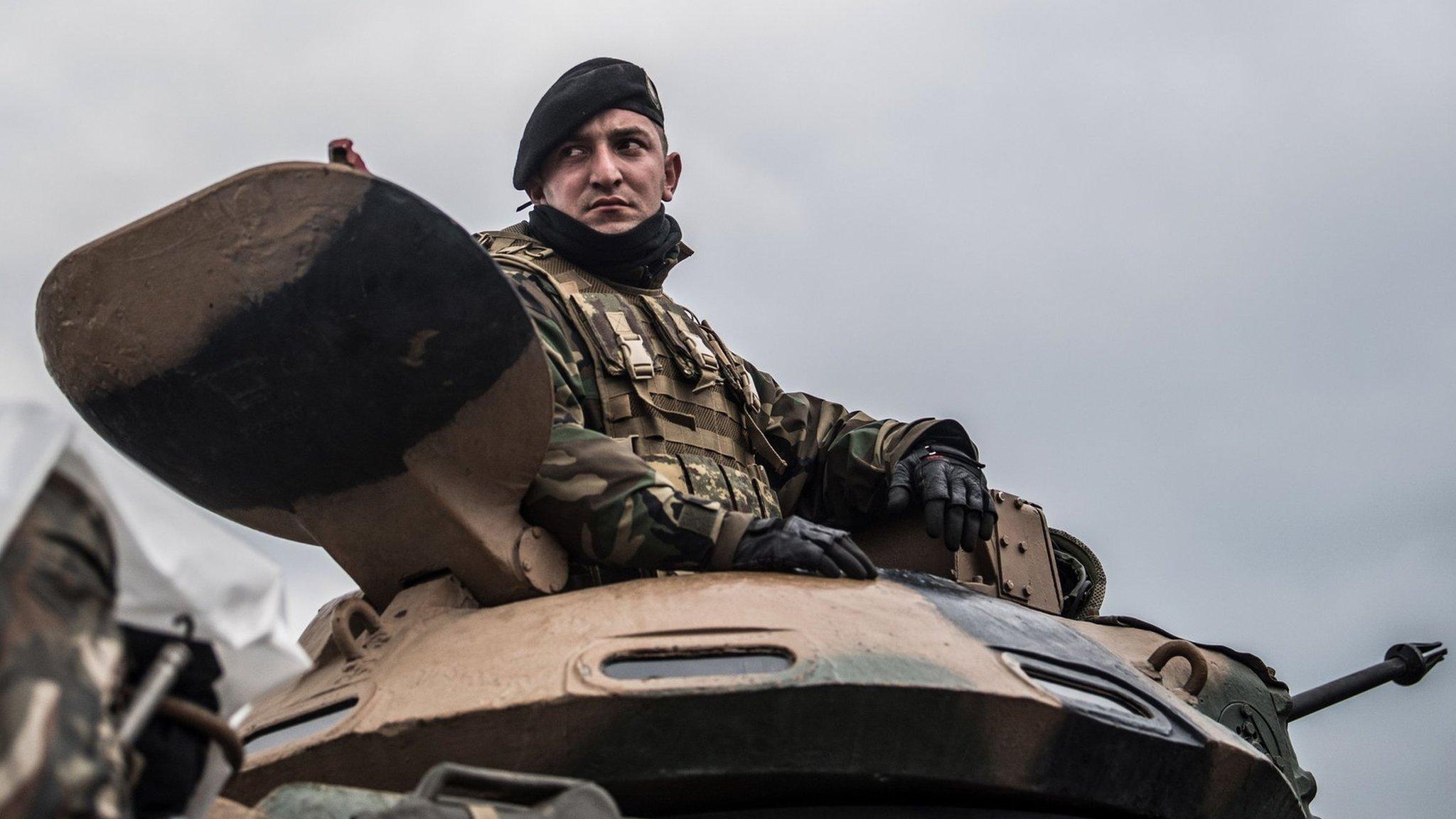
- Published25 January 2018
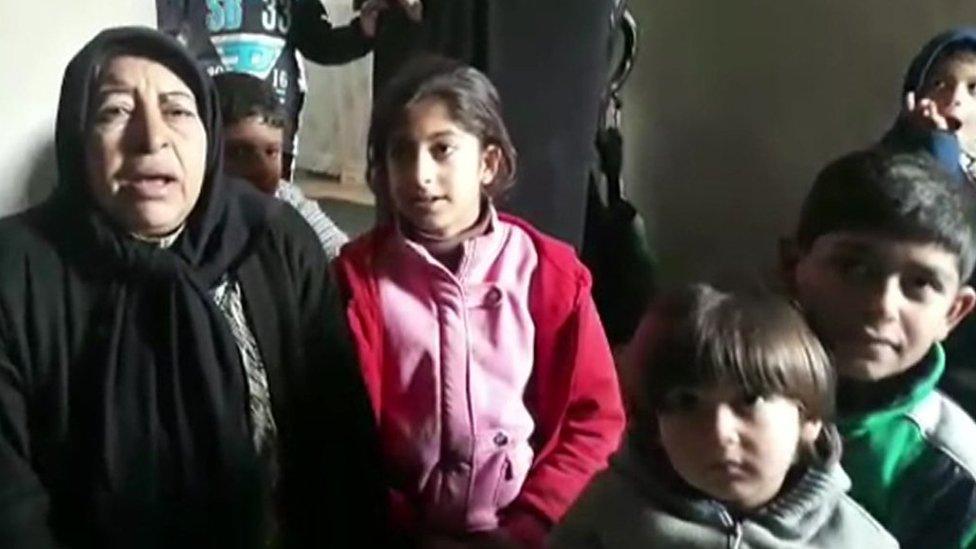
- Published24 January 2018
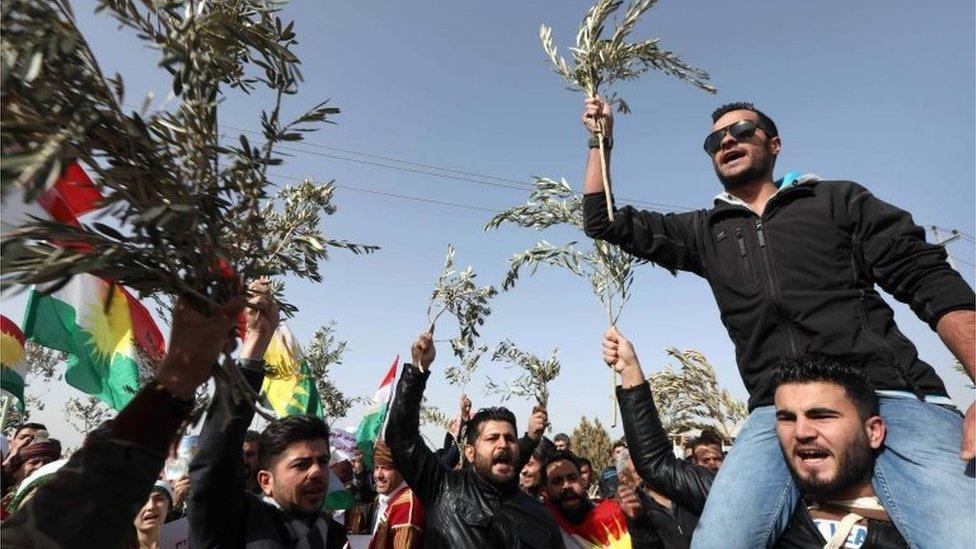
- Published23 January 2018
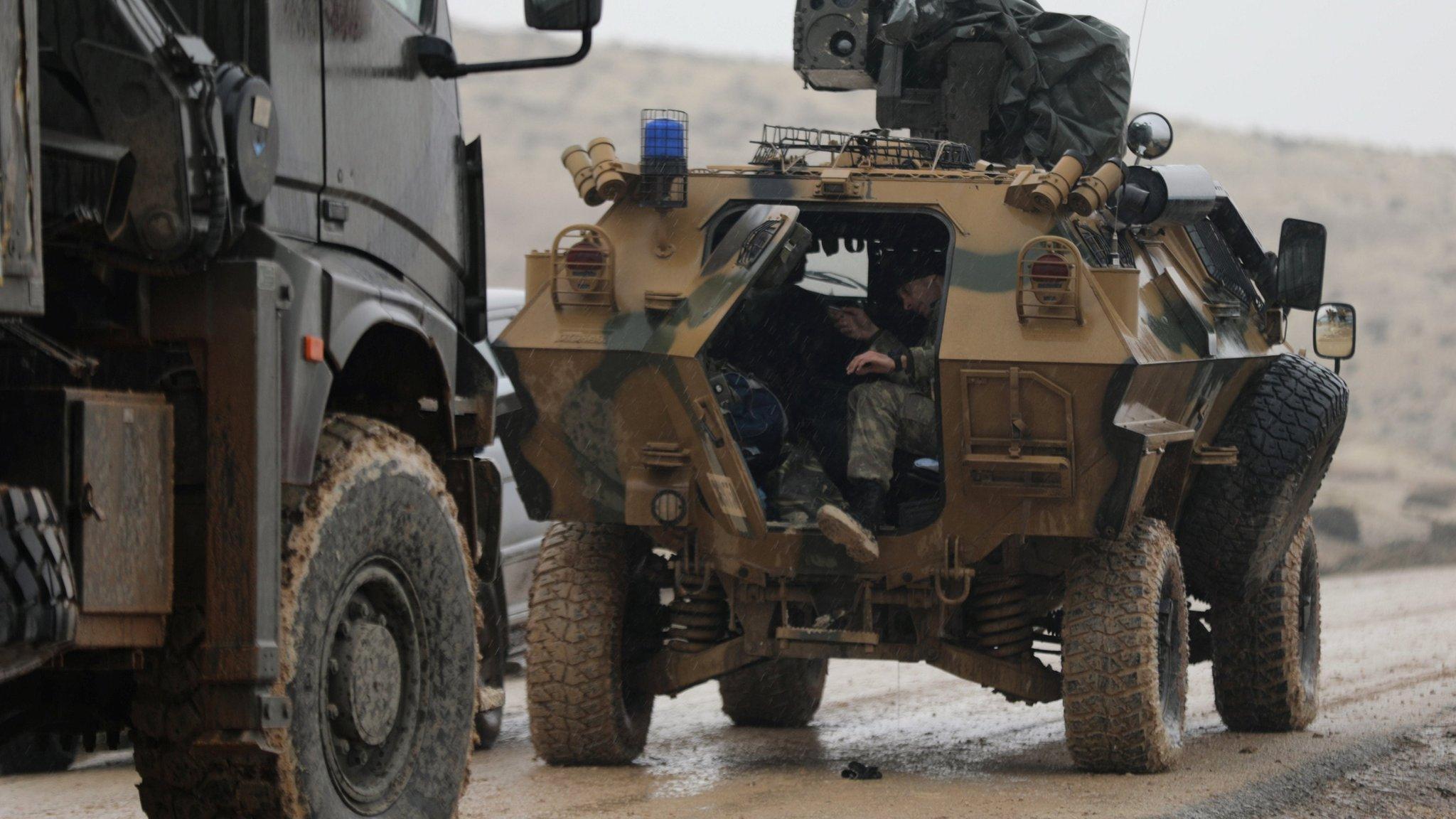
- Published15 October 2019
